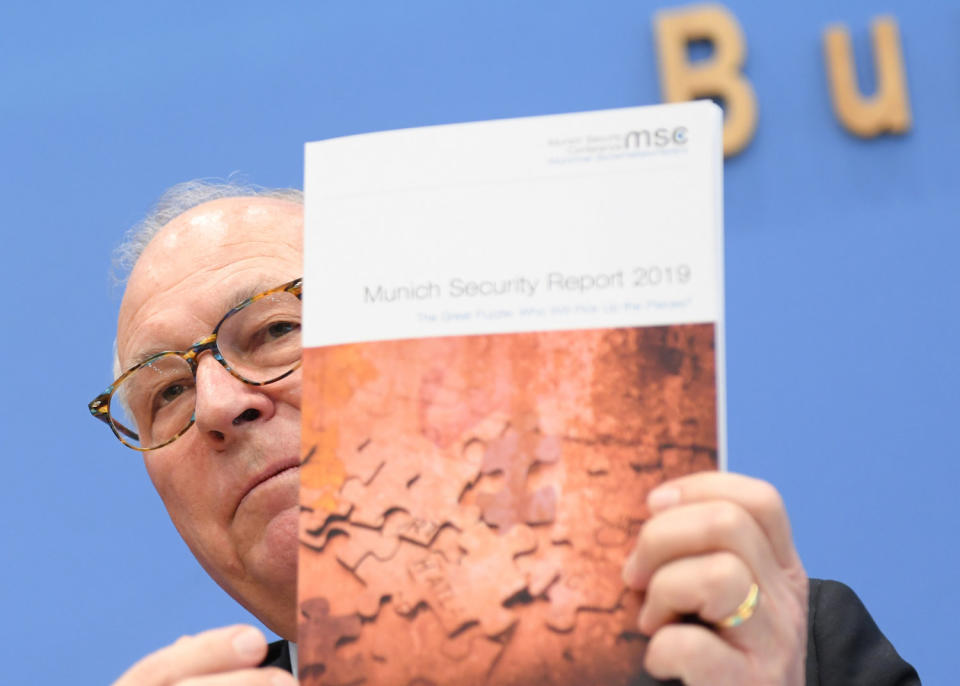Munich Security Conference chair asks who will pick up the pieces of a broken world order

The future of transatlantic relations, the self-assertion of the EU, and the danger of escalating great power rivalries are three main topics at this year’s Munich Security Conference, according to its chairman Wolfgang Ischinger.
The 55th Munich Security Conference, which runs from February 15 to 17, will be attended by the German chancellor, as well as representatives from the United States, Russia, and China.
The theme of this years’ Security Conference Report — entitled “The Great Puzzle: Who will pick up the pieces?” — is the broken world order. In his intro to the report, Ischinger writes that we are entering a new era of power competition between the US, China, and Russia “accompanied by a certain leadership vacuum in what has become known as the liberal international order.”
At a press briefing to present the report in Berlin on Monday, Ischinger said that despite the diplomatic stress that US president Donald Trump has put on the transatlantic relationship, it was an “an extraordinary, great signal” that twice or even three times as many members of the American government will attend the conference as in past years.
US vice president Mike Pence and acting defense secretary Patrick Shanahan are expected, as well as Nancy Pelosi, speaker of the House of Representatives.
Ischinger also said that the European Union was “alive and kicking,” but faced a “pivotal year” of big changes, including the EU Parliament elections, a new ECB head, and a new European Commission president.
“An extraordinary complex undertaking,” Ischinger said. “But if that is all successful, the European Union will be strengthened, not weakened, by Spring-Summer 2019.”
In an interview with Deutsche Welle on Friday, Ischinger pushed back against the idea that the EU was about to crumble because of Brexit. “We are the strongest trading and economic bloc in the world [and] we have a lot of economic and soft power,” he said.
Merkel, who goes to the conference every two years, released a video message over the weekend stressing its importance. The security conference, she said, made its name in the Cold War era and “talking to each other is today at least just as important as it was during the time of the Cold War.”
French president Emmanuel Macron recently cancelled his trip to Munich, giving rise to speculation that he was pulling out because of Germany and France’s disagreement over the Nord Stream 2 pipeline. Ischinger said Monday that he had been told that Macron needed to stay home and dedicate himself to domestic affairs after the signing of the Treaty of Aachen between France and Germany last month.

 Yahoo Finance
Yahoo Finance 